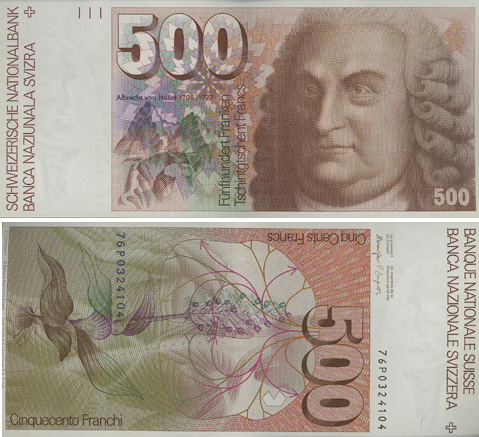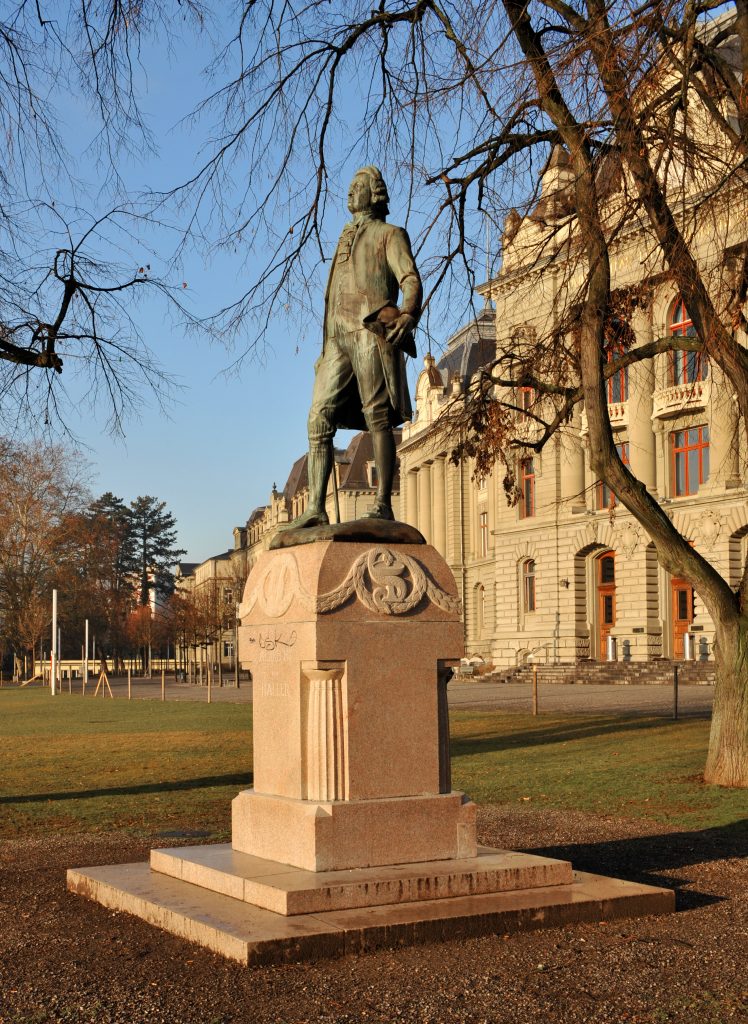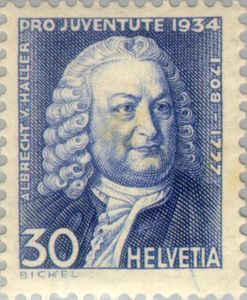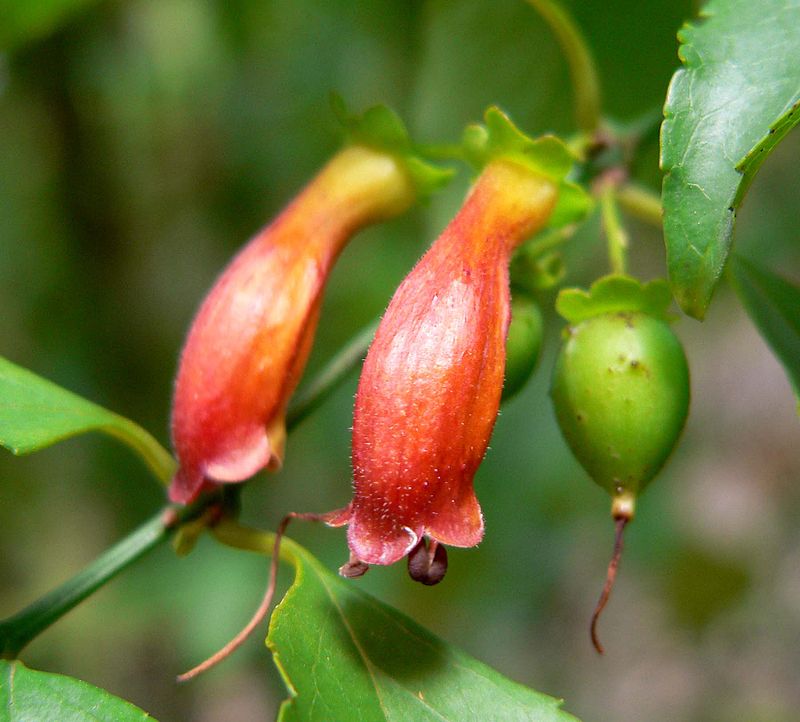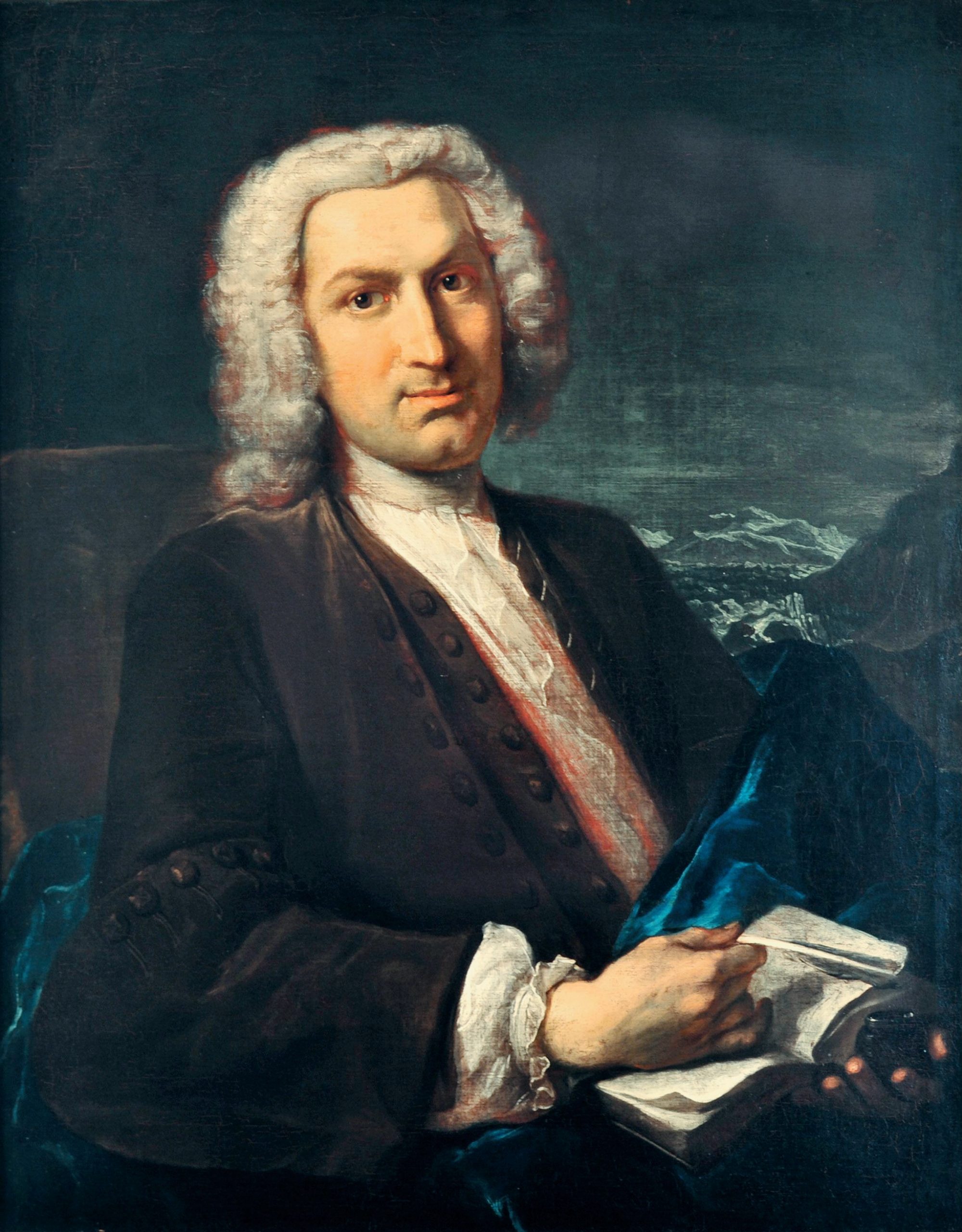Albrecht von Haller (also known as Albertus de Haller; 16 October 1708 – 12 December 1777) was a Swiss anatomist, physiologist, naturalist, encyclopedist, bibliographer and poet. A pupil of Herman Boerhaave, he is often referred to as “the father of modern physiology.”[1][2]
His botanic abbreviation is “Haller”, also used as “Hall.”
AS author his monumental work is Die Alpen.
In “Die Alpen” are notes pointing out some plants of his main botanic work Enumeratio methodica stirpium Helvetiae indigenarum:
- Seseli foliis acute multifidis umbella purpurea – Seseli (Bergfenchel)
- Gentiana floribus rotatis verticillatis – Gentiana lutea (Gelber Enzian)[4]
- Gentiana foliis amplexicaulibus floris faucte barbata – Gentiana asclepiadea (Schwalbenwurz-Enzian)[4]
- Antirrhinum caule procumbente, foliis verticillatis, floribus congestis – Antirrhinum (Löwenmäuler)
- Astrantia foliis quinquelobatis lobis tripartitis – Astrantia major (Grosse Sterndolde)
- Ledum foliis glabris, flore tubuloso – Rhododendron ferrugineum (Rostblättrige Alpenrose)
- Ledum foliis glabris, ciliatis, ovatis, flore tubuloso – Rhododendron hirsutum (Bewimperte Alpenrose)
- Silene acaulis – Silene acaulis (Stängelloses Leimkraut)
Botanics
- Die Gattung Halleria L. der Pflanzenfamilie der Stilbaceae wurde zu Ehren Hallers benannt.
Astronomy
- The Asteroid (1308) Halleria was called after Haller.
Geography
- The Haller Rocks, in the antarctic Palmer-Archipel, wear his name since 1960.
Street
- 1894 the Hallergasse in Vienna was named after him.
